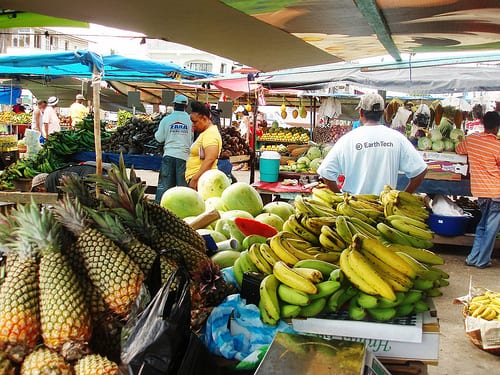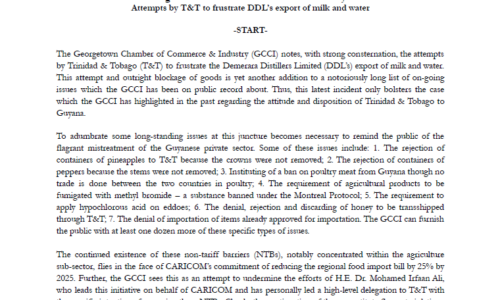NAREI certifies more farms from which exporters can source fresh commodities
(Kaieteur News) The list of farms from which exporters could source fresh commodities is increasing, thanks to the issuance of farm certificates by the National Agricultural Research and Extension Institute (NAREI).
From 2017 to date, 273 fruit and vegetable farms on the coastland have been certified by the Institute.
During a recent interview with Kaieteur News, Dr. Oudho Homenauth, Chief Executive Officer of NAREI, revealed that for the year 2019 the National Plant Protection Organization, a department within NAREI, issued 90 farm certificates. This is 10 more than the Institute had targeted for the year.
Farm certification is the process of inspecting and auditing farms for the purpose of validating their suitability for production. This may be for the purpose of seed production, organic crop production or for the provision of produce for the export market. The procedure outlined focuses on certification for the export market.
“Farm certification is one of the major requirements by Guyana’s trading partners to access their markets. The certificate guarantees that the farmer produced crops under conditions that satisfy local and international market standards,” he noted.
Currently, Guyana exports fresh produce to the Caribbean Islands, United States of America, Canada and the United Kingdom. Some of the crops that benefit from certification include pumpkin, pineapple, peppers, and coconuts.
“While the general objective is to have crops produced in an environmentally friendly manner that is good for human consumption from farm to market, the main objective is to expand export market opportunities for local products,” Dr. Homenauth explained.
“We want to avoid our exported commodities being rejected. We have to safeguard the integrity of Guyanese produce. Our farm certification process is continuous. It doesn’t stop at the issuance of a certificate. We make routine visits to farms to ensure they continue to comply with our protocols,” he added.
Farmers who are desirous of having their farms certified need to satisfy the following:
• Participation in Good Agricultural Practices training/workshops
• Crops (varieties) and area cultivated
• Agronomical practices: Record keeping
Irrigation
Drainage
Field sanitation
Harvesting methods
Storage methods
Waste disposal
• Pest management: IPM system employed
Weed control
Insect & disease control
Application method
Agro-chemical storage/use
Container disposal
Protective measures taken





